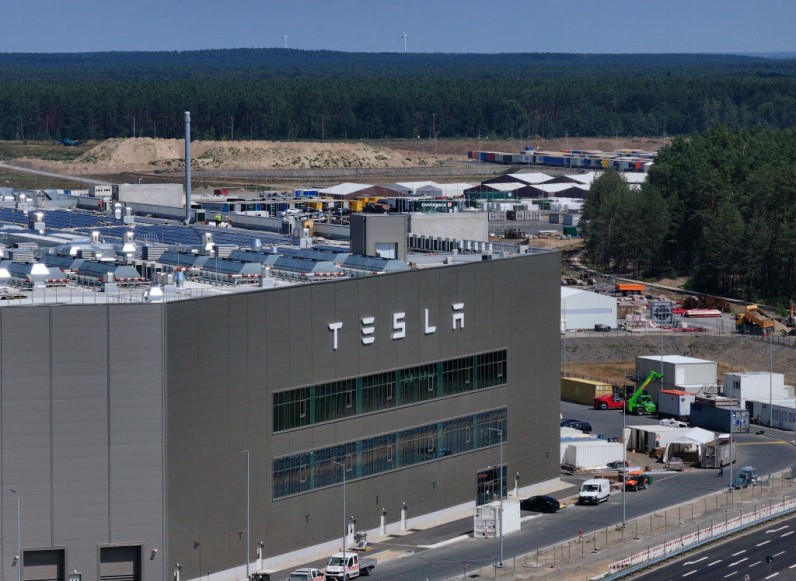
German environmental authorities in the state of Brandenburg have granted approval for Tesla's expansion of its Gruenheide plant, according to Reuters.
This decision paves the way for Tesla to enlarge its infrastructure, including establishing an asphalted logistics area for new vehicles and installing stairwells at its pressing plant.
CEO Elon Musk aims to double the site's capacity to produce 100 gigawatt hours of batteries annually and manufacture up to 1 million cars per year. This could solidify Tesla's position in Europe's competitive electric vehicle market.
Environmentalists Against Tesla's Gruenheide Plant Expansion
However, the approval has sparked concerns among environmentalists and local community groups, especially since the Gruenheide plant is situated in a drinking water protection area. German state's approval raises fears about potential risks to the region's water supply.
Critics argue that the increased industrial activity and potential runoff from the expanded facility could compromise water quality, impacting both local ecosystems and nearby communities reliant on clean drinking water.
Environmental advocates call for stringent rules and monitoring approaches to mitigate these risks effectively, urging Tesla and regulatory authorities to prioritize ecological sustainability alongside industrial development.
Earlier this year, VCPost reported that protestors had stormed the factory to challenge Tesla's "giga" expansion of the Gruenheide plant, resulting in a clash with German police.
Notably, it's not the first time Musk's company has met with resistance. Another report from VCPost stated that activists also received his SpaceX project in South Texas negatively due to its risks to tribal lands.







Join the Conversation